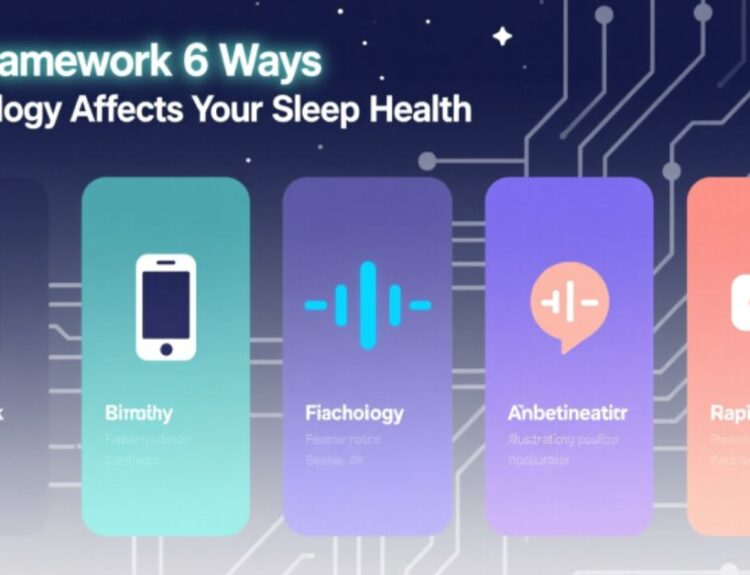Millions of people worldwide suffer with Attention Deficit Hyperactivity Disorder (ADHD), which impairs a person’s ability to concentrate, maintain organization, and effectively handle duties. ADHD glasses are a relatively new option that is gaining popularity, despite the fact that established therapies like medication and therapy are frequently employed. In addition to providing an alternative or supplement to more traditional treatments, these specialty glasses are made to help people with ADHD manage sensory overload, decrease distractions, and increase attention.
We will go into great detail about ADHD glasses in this post, including its definition, operation, possible advantages, and comparison to other ADHD treatment methods. You will have a thorough grasp of ADHD glasses and how they could be a useful tool for people with ADHD by the end.
What Are Glasses for ADHD?
ADHD glasses are specialized eyeglasses with lenses that assist people with ADHD in controlling symptoms associated with focus and visual processing. These glasses target specific issues that many people with ADHD encounter, like interruptions, sensory overload, and trouble focusing on tasks. They are not intended to cure ADHD in the conventional sense, such as with medication.
Usually, these glasses have blue light filtering or certain lens tints that enhance visual acuity and lessen the consequences of overstimulation. To help with focus even more, some ADHD glasses also use cutting-edge technologies like prismatic lenses or lenses with magnification capabilities.
How Do Glasses for ADHD Operate?
The purpose of the lenses in ADHD glasses is to improve clarity and lessen visual stress, which enables people with ADHD to concentrate on tasks for extended periods of time. The following elements influence how effective ADHD glasses are:
1. Reducing Blue Light Exposure: By causing eye strain and interfering with sleep, blue light from screens—such as those on TVs, laptops, and smartphones—can make symptoms of ADHD worse. Blue light-filtering glasses for ADHD reduce the negative effects of electronic devices, allowing people to work or study without being distracted or exhausted.
2. Enhancing Focus with Tints: Some tints in ADHD glasses can improve contrast or filter out strong light, enabling people to concentrate on particular tasks. By lowering glare and visual overstimulation, tints like amber or yellow are frequently employed to increase concentration and improve visual clarity.
3. Reducing Sensory Overload: Individuals with ADHD frequently experience sensory overload, which impairs their concentration. By blocking out specific light wavelengths or altering the visual experience, ADHD glasses with specialty lenses might lessen the intensity of overwhelming sensory information and make the wearer feel more at peace.
4. Facilitating Visual Tracking: Better visual tracking, which is frequently difficult for people with ADHD, can also be supported with ADHD glasses. These glasses can aid in learning, reading comprehension, and other activities requiring prolonged focus by enhancing the user’s ability to track moving objects or concentrate on written text.
Who Can Use Glasses for ADHD?
For those with ADHD who have trouble focusing, processing interruptions, or dealing with visual overstimulation, glasses might be very helpful. Those who suffer from sensory sensitivity or who spend a lot of time in places that require a lot of visual stimulation, such offices or schools, may find them helpful as well.
In the following particular situations, ADHD glasses could be useful:
• Students: Students who have trouble focusing in class or when studying may benefit from wearing ADHD glasses. ADHD glasses reduce digital screen distractions and help students stay focused in class by including blue light filters and clarity-enhancing hues.
• Adults in the Workplace: By assisting adults in maintaining focus during meetings, lowering eye strain from extended screen time, and increasing general productivity, ADHD glasses can also help adults in professional situations.
• Children: It can be difficult for kids with ADHD to focus during homework, play, or schoolwork. Children with ADHD can focus better with the use of ADHD glasses, which will lessen irritation and distractions.
Important Advantages of ADHD Glasses
1. Increased Focus: ADHD glasses help people focus better by lowering visual distractions and sensory overload, which improves performance in both professional and academic settings.
2. Less Eye Strain: People with ADHD may suffer from eye strain if they spend a lot of time in visually exciting settings or in front of devices. By reducing blue light and improving visual clarity, ADHD glasses help reduce this strain.
3. Increased Productivity: People can read, learn, and work more efficiently when they use ADHD glasses because they help them focus and cut down on distractions.
4. Improved Sleep: Exposure to blue light, particularly right before bed, might interfere with sleep cycles. Blue light-filtering ADHD glasses can lessen this disturbance and assist users in keeping a more regular sleep routine.
5. Less Anxiety: For those with ADHD, anxiety is frequently triggered by overstimulation and sensory overload. These emotions can be lessened with the aid of ADHD glasses, resulting in a more relaxed and concentrated mental state.
Evaluating ADHD Glasses in Relation to Other ADHD Therapies
It’s crucial to comprehend how ADHD glasses stack up against more conventional therapies like medication, counseling, and lifestyle changes, even if they are a promising aid for managing ADHD symptoms. The differences between ADHD glasses and other popular ADHD management solutions are shown in the comparison chart below.
| Treatment | ADHD Glasses | Medication (e.g., Stimulants) | Cognitive Behavioral Therapy (CBT) | Lifestyle Modifications |
| Purpose | Improve focus and reduce distractions | Treat core symptoms of ADHD | Address behavioral issues and coping strategies | Address daily routines and habits |
| How It Works | Reduces visual overstimulation, filters blue light, and enhances clarity | Stimulates brain chemicals to improve focus | Teaches coping mechanisms for managing ADHD symptoms | Encourages healthy routines, sleep, and nutrition |
| Side Effects | Rare side effects (may include discomfort from wearing glasses for long periods) | Potential side effects (e.g., insomnia, loss of appetite) | No significant side effects, though may require time and effort | May require consistent lifestyle changes and discipline |
| Duration of Effect | Immediate effects, especially for visual tasks | Immediate effects, but may require adjustments | Long-term improvements, with ongoing effort | Long-term changes over time with consistent effort |
| Cost | Moderate (depends on the brand and features) | Varies depending on medication | Cost of therapy sessions (varies) | Low-cost or free (depends on approach) |
| Best For | Individuals with visual processing difficulties or sensory overload | Individuals needing immediate relief from ADHD symptoms | Individuals needing help with emotional regulation and coping | Individuals seeking long-term strategies to manage ADHD |
Leading Manufacturers and Styles of ADHD Glasses
Specialized ADHD glasses are available from a number of brands, each with particular features intended to meet various demands. Here are some well-known companies that have gained popularity in the market for ADHD glasses:
1. FocusFactor o Features: Anti-glare coating, lightweight frame, blue light filtering o Ideal For: Professionals and students who spend a lot of time in front of screens o Cost: $100 to $250
2. VividFocus o Best For: People with ADHD who have problems focusing on written text or moving things o Price Range: $150 – $300 o Features: Enhanced contrast tints, configurable frame settings, built-in visual tracking assistance
3. SensoryVision o Features: Prism-based lenses with a tint that may be adjusted to lessen visual overstimulation o Ideal For: ADHD sufferers who are light-sensitive or flickering o Cost: $130 to $250
4. NeuroLens o Features: Eye tracking analysis, prismatic adjustments, prescription lenses o Ideal For: People with ADHD and problems with eye coordination
Range of Prices: $200 to $400
Do You Need ADHD Glasses?
Even while they might offer a lot of advantages, not everyone is a good fit for ADHD glasses. The unique needs of each person and the type of ADHD symptoms they experience determine how effective ADHD glasses are. To ascertain whether ADHD glasses are a good fit, it’s crucial to speak with a healthcare professional, such as a physician or optometrist.
People who use ADHD glasses in conjunction with other therapies like medicine, counseling, and lifestyle changes may achieve success. ADHD glasses, for instance, may help someone with ADHD concentrate better when working or studying, but cognitive behavioral therapy may also help them with emotional stability.
Conclusion
ADHD glasses are a cutting-edge tool that can assist people with ADHD in controlling their focus, sensory overload, and visual distraction symptoms. ADHD glasses are a useful tool for enhancing focus and lowering stress in light of the growing demands of modern life and the proliferation of digital devices. When used in conjunction with other therapeutic approaches, ADHD glasses can improve the general quality of life for individuals with ADHD by offering a non-invasive, reasonably priced way to manage symptoms.
As part of a comprehensive treatment plan, think about looking into ADHD glasses if you or someone you know is having trouble with the disorder. You can achieve better eyesight and increased concentration with the correct glasses, which will make it simpler to do everyday chores and continue to be productive.







